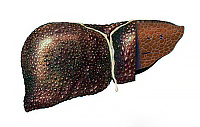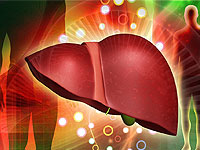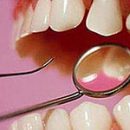How the hepatic insufficiency is treated and what are the measures for the prevention of this state, read in this article.
Content
Hepatic insufficiency and its stage
The liver is the largest digestive gland, it weighs about 1.5 kg. This is a very difficult organ with extremely varied functions. The liver takes part in metabolism, neutralizes substances harmful to the body; Blood proteins (albumin, globulins, many coagulation factors) are produced in the liver. In addition, the liver produces bile, contributing to the absorption of fats. Wonderful if you have a healthy liver. And if not? How people are treated, the liver disease of which has complicated hepatic insufficiency?
So, let's first deal with the term: what is hepatic insufficiency?
Hepatic insufficiency syndrome - symptom complex characterized by a violation of one or many liver functions due to acute or chronic damage to its tissue.
There are sharp and chronic liver failure and three of its stages:
- I stage - initial (compensated);
- II stage - pronounced (decompensated);
- III Stage - Terminal (Dystrophic).
The terminal stage of hepatic insufficiency ends with a hepatic coma.
Acute hepatic insufficiency may occur with severe forms of viral hepatitis, industrial poisoning (arsenic, phosphorus, etc.), vegetable (inedible mushrooms) and other poisons, some drugs (male fern extract, tetracycline, etc.), transfusion of the information blood and in a number of other cases.
Chronic liver failure occurs when the progression of many chronic liver diseases (cirrhosis, malignant tumors and t. D.).
With hepatic insufficiency, the antitoxic function of the liver suffers, its participation is also reduced in various types of exchange (protein, fat, carbohydrate, electrolyte, vitamin, etc.).
 Patients with acute hepatic insufficiency (regardless of its stage) are immediately hospitalized (with viral hepatitis, leptospirosis and other infectious diseases - in infectious hospitals, with toxic lesions of the liver - to the centers of poisoning).
Patients with acute hepatic insufficiency (regardless of its stage) are immediately hospitalized (with viral hepatitis, leptospirosis and other infectious diseases - in infectious hospitals, with toxic lesions of the liver - to the centers of poisoning).
In case of acutely arising, liver failure and hepatic coma is very important intensive medical events to support the life of the patient during the critical period (several days), calculating the significant regenerative ability of the liver. Conduct treatment of the underlying disease, with toxic hepatosis - measures aimed at removing the toxic factor.
Prescribe laxatives, enemas. In order to bind to ammonia accumulating in the body, glutamic acid is administered intravenously.
In chronic liver failure, the main disease and symptomatic therapy. Limit the flow of protein with food, the lactic acid products are useful, prescribe laxatives and enemas in order to remove protein decay products from the intestines; courses are prescribed inside antibiotics.
Intravenously introduced glucose solutions, glutamic acid, vitamins are prescribed. Condificably prohibited the admission of alcoholic beverages, drugs, barbiturates. Patients with chronic liver diseases complicated by hepatic insufficiency are disabled and need to be disabled.
Prevention of acute liver failure reduces to the prevention of infectious and toxic liver lesions. The prevention of chronic liver failure is the timely treatment of liver diseases that can serve her cause. Of great importance is the fight against alcoholism.









